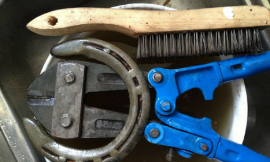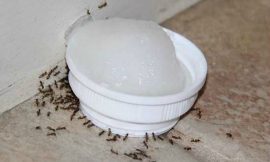
Has your laundry started to smell more like a damp basement than freshly cleaned clothes? You're not alone! Studies show that around 70% of households encounter this issue at some point. But why does this happen? The primary culprit is often mold growth within your washing machine. In this article, we’ll uncover the reasons behind unpleasant odors, the importance of maintenance, and actionable tips to keep your washing machine smelling fresh and clean! Let’s dive in!
Understanding Mold Growth in Washing Machines
Why Mold Thrives
Mold loves damp environments, and your washing machine is an ideal habitat. When you wash clothes, especially with warm or hot water, the residual moisture can linger in various parts of the machine. Materials like rubber seals and detergent compartments can retain water, creating a perfect breeding ground for mold.
Identifying Mold
Sometimes, it's easy to tell when mold is present in your washing machine. Look out for signs like discoloration on the rubber door seal or within the drum. An unpleasant, musty odor is another strong indicator that mold might be hanging around. If you notice any of these signs, it's time to take action.
Health Risks
Exposure to mold can pose several health risks, particularly for those with allergies, asthma, or compromised immune systems. Symptoms may include sneezing, coughing, skin irritations, and even respiratory issues. It's crucial to address mold growth promptly to safeguard your health.
Causes of Unpleasant Odors in Washing Machines
Moisture Accumulation
One common cause of bad smells in washing machines is moisture build-up. Leaving the door closed after a wash traps humidity inside, which can lead to mold growth and unpleasant odors. This simple habit can significantly affect your machine's smell.
Detergent Build-Up
Using too much detergent can create a residue that clogs your washing machine and encourages odor. The excess detergent doesn’t rinse out completely and can become a breeding ground for bacteria and mold, adding to those nasty smells.
Remnants of Previous Loads
Have you ever left items in your machine after washing? Lingering fabrics or debris from previous loads can also contribute to odors. Even small amounts of leftover lint can create an unpleasant smell, especially when combined with the moisture that’s often trapped inside.
Prevention Tips to Keep Your Washing Machine Smelling Fresh
Regular Cleaning
Routine maintenance is essential for keeping your washing machine in tip-top shape. Regular cleaning cycles help eliminate any build-up of detergent, fabric softener, or other debris. Make this a part of your household chore schedule.
Air Drying
A simple and effective way to prevent odors is to keep the door ajar after you're done washing. This allows moisture to escape and air to circulate inside the drum, which can significantly reduce the chances of mold growth and unpleasant odors.
Using Vinegar and Baking Soda
For a natural cleaning solution, consider using vinegar and baking soda. Running a hot wash with two cups of white vinegar followed by a wash with half a cup of baking soda can help neutralize odors and clean the inner workings of your machine without harmful chemicals.
Remedies to Eliminate Existing Odors
Deep Cleaning Techniques
If you’re already dealing with odors, a deep clean can work wonders. Start by running an empty cycle with hot water and vinegar, followed by another cycle with hot water and baking soda. Wipe down the rubber seals and detergent drawer to remove any remaining residue.
DIY Methods
Household items like lemon juice or essential oils can also act as deodorizers. Adding a cup of lemon juice to an empty wash can provide a fresh scent while helping to clean your machine. Essential oils such as tea tree or lavender can also help combat odors.
When to Call a Professional
If you’ve tried everything and odors persist, it might be time to call a professional. Signs that require expert intervention can include persistent odors, leaks, or other significant issues that you can't resolve on your own.
Best Practices for Washing Machine Maintenance
Choosing the Right Detergent
Make sure you’re using the right amount and type of detergent for your machine. High-efficiency machines, for example, require low-sudsing detergents. This prevents excessive residues that can cause smells and machine malfunctions.
Frequency of Cleaning
How often should you clean your washing machine? While regular maintenance should be done monthly, more thorough cleaning every three to six months is recommended to ensure your machine stays fresh and functioning properly.
Monitoring Humidity Levels
Keeping an eye on humidity levels in your laundry area can also help. Consider using a dehumidifier or ensuring your laundry room has proper ventilation to minimize moisture, which can lead to odors and mold growth in your appliances.
Conclusion
To wrap it up, understanding why your washing machine smells is crucial for maintaining a clean and healthy laundry routine. By recognizing the causes, implementing prevention strategies, and knowing how to tackle odors when they arise, you'll keep your washing machine fresh and your laundry smelling delightful! If you’re struggling with persistent smells despite your efforts, consider contacting a professional for help. Breathe easy and embrace the freshness of your clean clothes!






